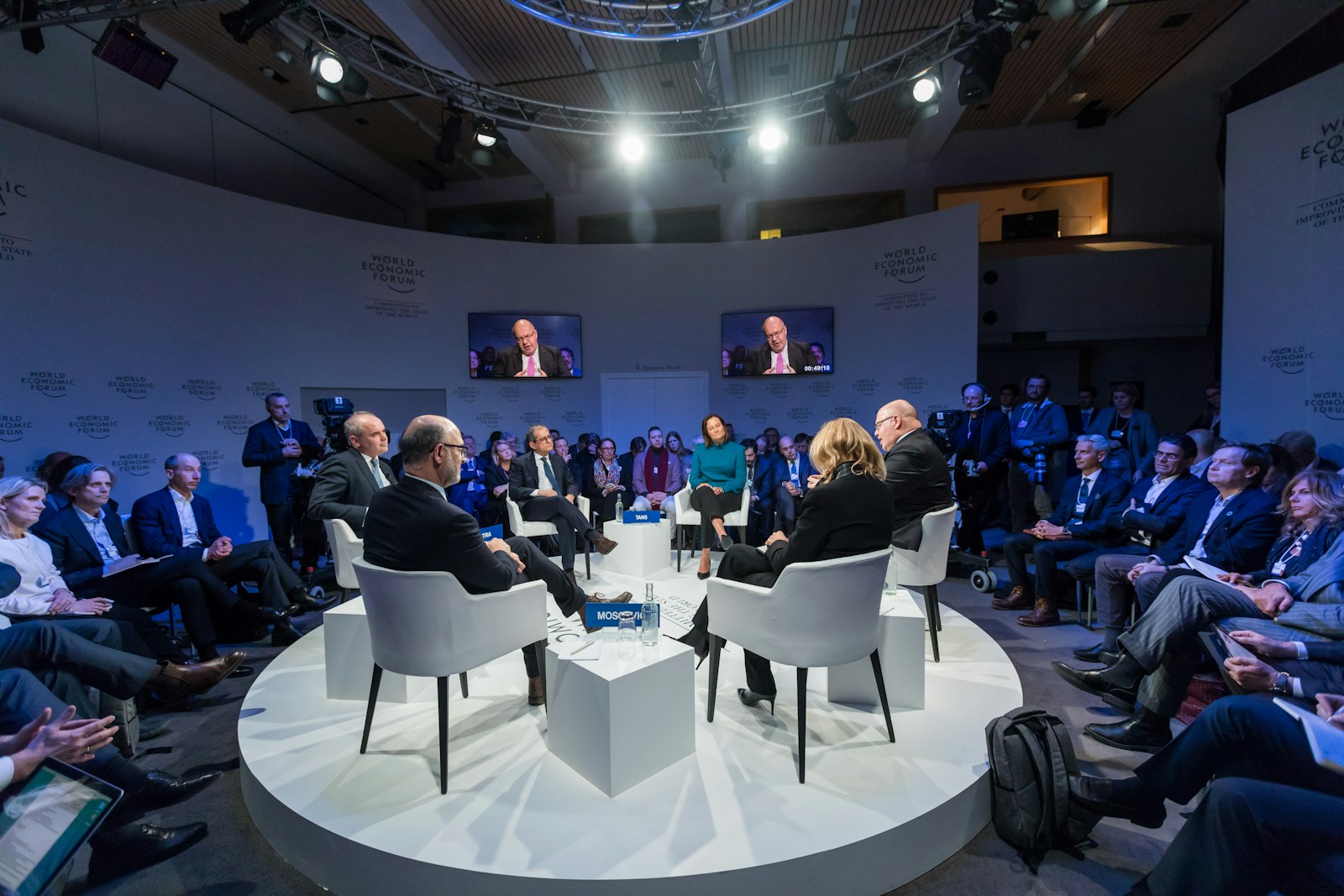Political discussions can quickly escalate into heated debates, especially when certain topics are broached. To maintain peaceful and productive dialogues, it’s crucial to steer clear of contentious issues that are prone to sparking conflict. Here are 11 political debates you should avoid if you prefer harmonious and civil conversations.
1. Abortion
Among the most divisive topics, abortion elicits strong emotions and deeply held beliefs on both sides of the spectrum. Instead of engaging in this debate, focus on finding common ground or respecting differing viewpoints without delving into this highly sensitive subject.
Navigating the Conversation
When discussing abortion, approach the topic with sensitivity and empathy towards differing perspectives. Recognizing the complexity of beliefs surrounding abortion can lead to more respectful and constructive conversations. For instance, if the topic arises, it might be helpful to steer the discussion towards broader topics like women’s health and family planning, which can foster a more productive dialogue.
Case Study: Respectful Dialogues
Consider the case of a community meeting in a small town where differing opinions on abortion were anticipated. By structuring the event to focus on healthcare access and support services for families, the organizers successfully navigated the sensitive topic without escalating tensions. This approach allowed for a constructive exchange of ideas and highlighted shared values.
2. Gun Control
The gun control debate is a hot-button issue that often leads to polarizing arguments. Rather than getting caught up in this contentious topic, shift the discussion towards exploring solutions that prioritize safety and respect for diverse perspectives.
Evidence-Based Discussions
When discussing gun control, it is essential to focus on evidence-based solutions and common goals of reducing violence while respecting the rights of individuals. For example, discussing statistics on gun violence reduction through community programs or educational initiatives can be a way to engage in meaningful dialogue without confrontation.
Practical Example
A city council in a mid-sized American city focused on creating a community task force to address local gun violence. By prioritizing community safety and involving stakeholders from different backgrounds, the task force was able to identify practical solutions, such as increased funding for mental health services and community policing, which were broadly supported.
3. Immigration
Immigration policies can stir up intense rhetoric and xenophobic attitudes. To maintain a peaceful dialogue, it’s advisable to approach the subject with empathy and a willingness to understand various viewpoints, rather than getting entangled in arguments over immigration stances.
Emphasizing Human Stories
When discussing immigration, consider the human aspect and the diverse reasons why individuals migrate. Sharing stories of immigrants’ contributions and challenges can help humanize the topic and foster empathy. This approach can lead to more compassionate and less confrontational discussions.
A Personal Insight
During a university forum on immigration, a professor shared her family’s story of immigrating to the United States. By personalizing the issue, she was able to shift the conversation from abstract policy debates to a focus on human experiences, encouraging participants to consider the personal impacts of immigration policies.
4. Climate Change
Climate change can be a volatile topic, with stark disagreements over the causes and solutions. Avoid this debate by focusing on common goals of environmental stewardship and sustainable practices, fostering constructive conversations that unite rather than divide.
Collaborative Solutions
When discussing climate change, emphasize the shared responsibility of caring for the environment and seeking solutions that benefit present and future generations. Highlighting local initiatives, such as community gardens or renewable energy projects, can create a more collaborative and forward-thinking dialogue.
Example of Community Action
In a coastal town vulnerable to rising sea levels, residents organized a climate action group focused on local adaptation strategies. By concentrating on practical measures like flood defenses and habitat restoration, the group was able to unify diverse community members around tangible projects.
5. LGBTQ+ Rights
Discussions surrounding LGBTQ+ rights can quickly turn contentious due to differing beliefs and values. Instead of debating this topic, strive to promote inclusivity and respect for all individuals, fostering an environment of understanding and acceptance.
Promoting Inclusivity
When discussing LGBTQ+ rights, prioritize inclusivity and respect for diversity. By advocating for equal rights and creating a welcoming space for all individuals, conversations on LGBTQ+ rights can be more affirming and supportive. For instance, discussing policies that ensure workplace equality can be a productive way to engage with the topic.
Progressive Policy Example
A multinational corporation implemented a comprehensive diversity and inclusion program, which included training sessions and policy changes to support LGBTQ+ employees. By focusing on creating an inclusive work environment, the company fostered a culture of acceptance and respect.
6. Political Affiliations
The discussion of political affiliations can often devolve into partisan bickering and personal attacks. To maintain a peaceful dialogue, steer clear of divisive party politics and instead focus on exploring issues and solutions based on merit and substance.
Focusing on Policies
When discussing political affiliations, focus on policies and principles rather than engaging in personal attacks. By emphasizing substantive discussions and seeking common ground on important issues, conversations on political affiliations can be more respectful and constructive.
A Practical Approach
In a local government setting, council members from different political parties collaborated on a public transportation initiative. By focusing on the benefits of improved infrastructure rather than party ideologies, they were able to achieve consensus and move the project forward.
7. Foreign Policy
Foreign policy debates can become heated, especially when discussing complex international relations. Rather than engaging in contentious arguments, strive to approach foreign policy discussions with an open mind and a willingness to listen to diverse perspectives for a more peaceful exchange of ideas.
Understanding Complexities
When discussing foreign policy, consider the complexities of international relations and the diverse perspectives that exist. Promoting open-mindedness and listening to a range of viewpoints can lead to more nuanced and productive discussions.
Case Study: Diplomatic Dialogue
A university’s international relations department hosted a series of roundtable discussions on foreign policy challenges. By inviting experts from various fields and countries, the event facilitated a deep exchange of ideas, allowing participants to appreciate different perspectives and the intricacies of global diplomacy.
8. Racial Inequality
Conversations about racial inequality can be uncomfortable and emotionally charged. Instead of engaging in debates that may escalate tensions, focus on promoting equality, understanding historical context, and advocating for social justice to foster productive discussions on this vital issue.
Promoting Equality and Justice
When discussing racial inequality, acknowledge historical injustices and the systemic issues contributing to inequality. By promoting equality and advocating for social justice, conversations on racial inequality can be more enlightening and impactful.
Example of Community Engagement
In a diverse urban neighborhood, a community organization initiated a series of workshops on racial equity and justice. By addressing historical context and promoting dialogue among residents, the initiative helped build understanding and fostered a commitment to social change.
9. Religion
Religious beliefs are deeply personal and can lead to intense disagreements. To avoid potential conflict, respect individual faiths and refrain from debating religious ideologies, instead emphasizing mutual understanding and tolerance in discussions.
Fostering Mutual Respect
When discussing religion, approach the topic with respect for individual beliefs and a willingness to foster understanding. By emphasizing mutual respect and tolerance, conversations on religion can be more respectful and conducive to mutual learning.
Interfaith Dialogue Example
A city council organized an interfaith dialogue series, bringing together leaders from different religious communities. By focusing on shared values like compassion and service, the series promoted mutual understanding and strengthened community bonds.
10. Healthcare
The healthcare debate often centers around complex policy solutions and differing opinions on access and affordability. Instead of getting embroiled in arguments, focus on the common goal of improving healthcare outcomes and explore solutions that prioritize the well-being of all individuals.
Shared Goals in Healthcare
When discussing healthcare, focus on shared goals of improving access to quality care and ensuring the well-being of individuals. By emphasizing healthcare outcomes and exploring solutions that benefit all, discussions on healthcare can be more collaborative and focused on positive outcomes.
Example of Collaborative Healthcare Solutions
A regional health network implemented a collaborative care model, bringing together hospitals, clinics, and community organizations to improve patient outcomes. By focusing on shared goals and leveraging community resources, the network successfully increased access to care and improved health metrics across the region.
11. Economic Policies
Economic policies can be contentious topics, with debates over taxation, wealth distribution, and fiscal strategies. To maintain a peaceful dialogue, approach discussions on economic policies with a focus on shared prosperity, fairness, and sustainability, seeking common ground to avoid unnecessary conflicts.
Constructive Economic Discussions
When discussing economic policies, consider the broader goals of shared prosperity and sustainability. By seeking common ground and emphasizing fairness in economic discussions, conversations on economic policies can be more constructive and focused on creating a more equitable society.
Policy Innovation Example
In a progressive city, policymakers implemented a pilot program for universal basic income. By framing the initiative as a means to ensure economic stability and reduce poverty, the program garnered broad support and provided valuable insights for future policy development.
In the realm of political discourse, choosing to focus on areas of commonality and mutual respect can transform potentially contentious debates into opportunities for learning and collaboration. By approaching these sensitive topics with empathy and open-mindedness, you can foster more productive and harmonious discussions.




